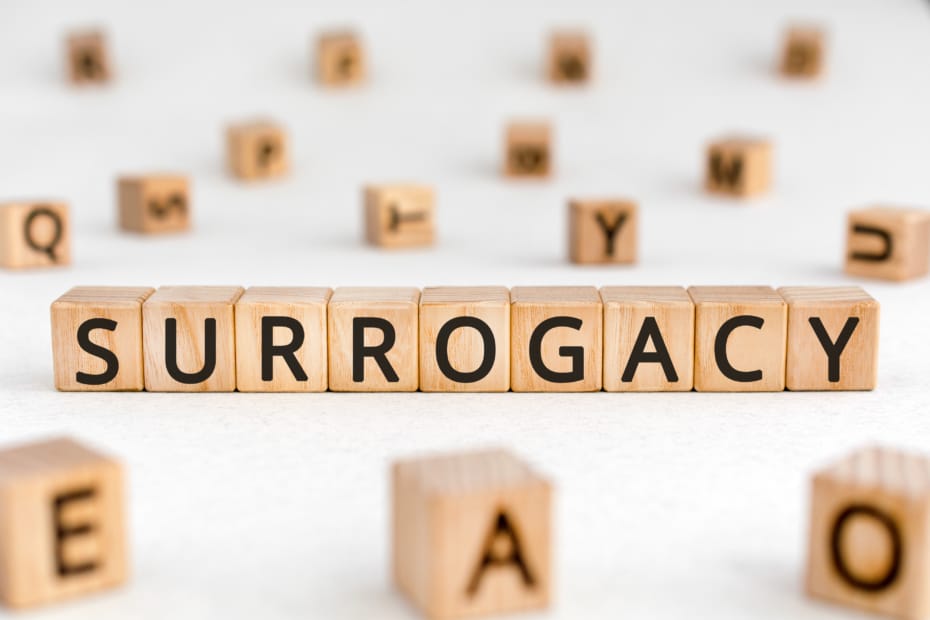Call Us At 519.672.5666
Insights & Articles
From “Intended Parents” to “Parents”: Implications of Surrogacy for Parental Rights

Are you considering using a surrogate to grow your family? It is essential to know the laws around parentage to ensure that your parental rights are recognized. Family and Fertility Law lawyer Megan Strachan advises those considering surrogacy to consult a fertility law lawyer early on in the process, even prior to choosing a surrogate. This way, you can ensure that you minimize the chance that your child will be born in a place that will not recognize your parental rights, and you will know the process to be recognized as your child’s parent after the birth.
The legal definition of “parent” has changed rapidly. As assisted reproduction technology has evolved, the law has progressed alongside it to recognize individuals, couples, and even three or four persons as the legal parents of children conceived and born using these technologies.
However, the law has not evolved at the same pace, or in the same way, across Canada. Each province has its own laws about how parentage is recognized and who will be recognized as a child’s legal parents. Some provinces are more expansive with their definition of “parent” and make it simple for intended parents to be legally recognized on a child’s birth certificate. Other provinces have more challenging processes, or more restrictive rules. The very different laws of two neighbouring provinces – Ontario and Quebec – are described below to illustrate why it is important to consider these rules before beginning your surrogacy journey.
Ontario – a “Surrogacy Friendly” Province
Ontario is considered a very surrogacy-friendly province, in large part due to the All Families are Equal Act, which was enacted in 2016. This Act specifically addresses the recognition of parents of children who were conceived and born using assisted reproduction.
Certain keys aspects of this Act include various ways to be recognized as a parent to a child without any genetic connection to the child. For instance, the intended parents of a child born to a surrogate are recognized in law as the parents of the child (upon the surrogate providing her written consent to relinquish her entitlement to parentage). However, even before this consent is provided, the surrogate and the intended parents are recognized as sharing the rights and responsibilities with respect to the child from the time the child is born. There is no need to apply to the court for a declaration of parentage unless the surrogate cannot or will not give consent to release her parental rights.
Quebec – No Recognition of Intended Parents’ Rights
In Quebec, the law does not automatically recognize the parentage rights of the intended parents. Article 541 of the Civil Code provides a blanket ban on surrogacy which creates undesirable effects on intended parents.
In Quebec, parentage is proven by an official document from the Registrar of Civil Status called the “act of birth”. To obtain this official document, two forms are required: (1) the “attestation of birth” and (2) the “declaration of birth”.
The attestation contains information about the birth mother (i.e. the surrogate) and the child, and is completed by the physician, nurse or midwife who assists with the birth. The declaration requests the names of up to two individuals who will be registered as the child’s parents.
The issue with this system for surrogates and intended parents is if the attestation and declaration do not match, the Registrar cannot issue the act of birth without the permission of the Quebec court. For a surrogate and intended parents, these two forms will not match, as the surrogate will appear on the attestation but not on the declaration. It is sometimes possible to have the intended father recognized as a parent in Quebec more easily if the surrogate is unmarried. This is because the surrogate may, in that situation, list the intended father on the declaration. However, this means that the intended mother will still not be recognized – the surrogate will still be recognized as the child’s parent. If the surrogate is married, then her husband is presumed to be the father and would be listed on the declaration – even if neither person has any genetic link to the child.
As a result, intended parents often must obtain legal parentage status through adoption. Even if all parties consent, the court must still conduct its own analysis to determine whether the adoption is in the best interest of the child before granting it.
If you are considering surrogacy, either as intended parents, or becoming a donor or a surrogate, contact one of McKenzie Lake’s Family Law teams and we would be pleased to assist you.
For further information with regard to Surrogacy in Canada, please visit the MySurrogateMom website.
This article was written by Family Law Lawyer Megan Strachan and Articling Student Wincy Ho.

